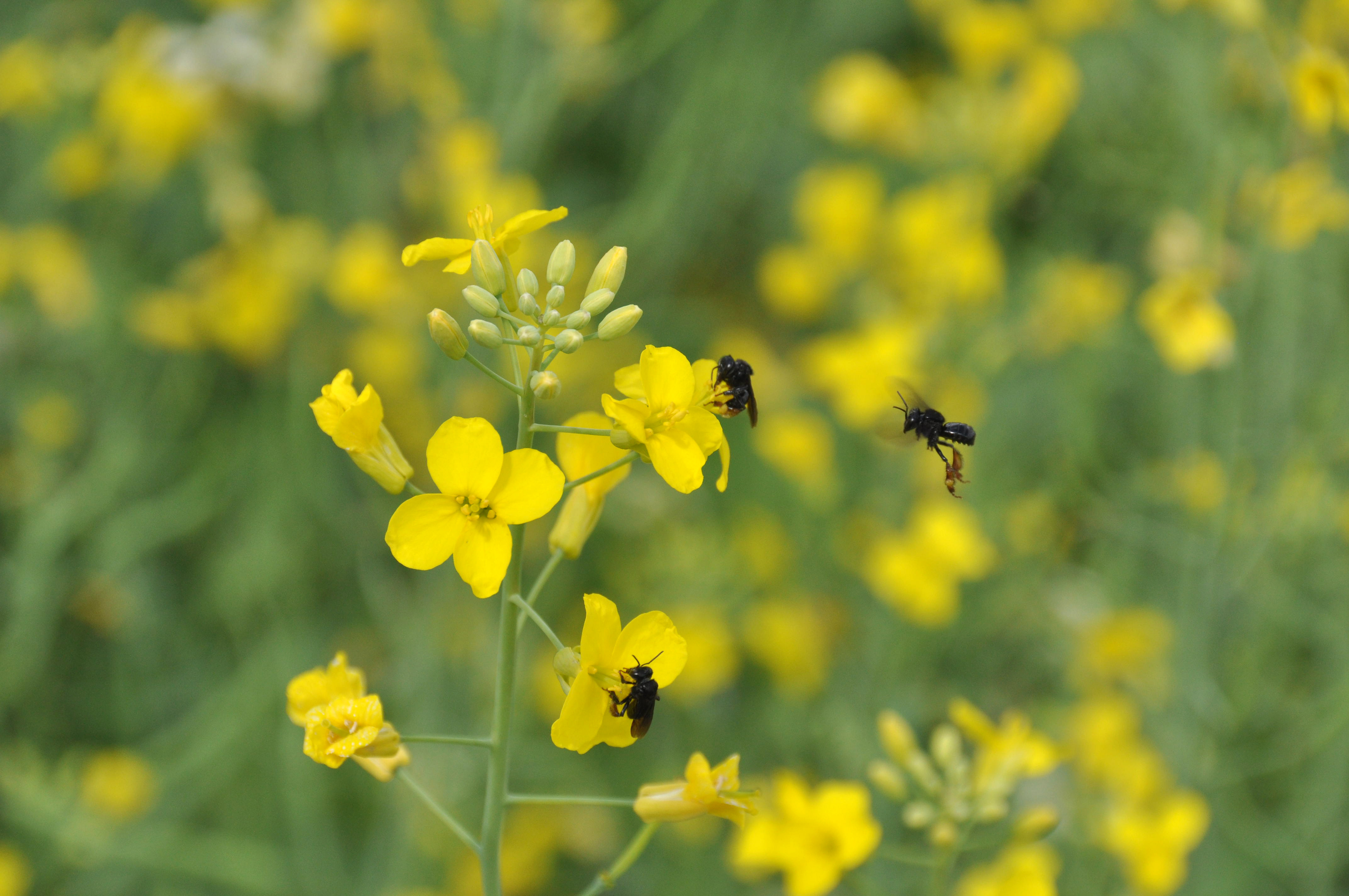
Pollination can increase 17% canola production
The importance of bees in canola pollination was one of the themes of the 8th Training Course and Technology Diffusion in Canola, that happened in 26 March, at Embrapa Trigo. The event, promoted in partnership with Abrascanola, counted on more than 200 participants.
Canola has self-pollination mechanisms, but the presence of pollinating insects can increase the percentage of fertilized flowers and the grain yield of the crop. Research conducted by the Brazilian Canola Pollination Network (partnership between PUCRS, FEPAGRO and UCS) evaluated the impact on the presence of bees in canola fields in Rio Grande do Sul. The objective was to quantify the importance of bees and other pollinating insects in crop yields.
Studies were carried out during the flowering of canola in three municipalities in the state of Rio Grande do Sul: Esmeralda, Star and Guarani of the Missions.
The methodology included three comparisons: open crop (natural pollination process), covered crop (free bees) and manual pollination flower by flower.
The evaluations identified more than 38 pollinating insect species, and found that the bee Apis mellifera is the most abundant and important species, representing on average 76% of pollinators in crops.
According to researcher Betina Blochtein, of the Pontifical Catholic University of RS (PUC-RS), the results were surprising: bee-free visitation increased between 17% (hybrid hyola 420) a 30% (Hyola 61) canola productivity. “This is just profit, the producer had no costs to achieve this increase in grain production”, Betina account. According to the researcher, the greater presence of bees increased the number of silicas and the weight of canola grains. The effect on grain yield depends on the density of pollinators in the crop, weather conditions during the flowering period (bees cannot tolerate cold below 15ºC) and the canola variety (differences in flowering duration). Generally, the study indicates that pollination not only improves the grain yield of the crop, but it also contributes to the uniformity and precociousness of silica formation.
The impact of using hives close to canola crops is also in generating additional income through the production of canola honey, with high valuation in the European market, but still little explored in Brazil.
Although the use of pesticides is generally less in the cultivation of canola compared to other grain crops, producer attention is needed in the use of pesticides to favor the presence of pollinating insects, since bees are extremely sensitive to pesticide residues.
Another important factor in strengthening bee populations in the area is the diversification of the landscape for the conservation of nests and the supply of food for native species.. How bees fly relatively short distances (300 m a 3 km), it becomes necessary to maintain semi-natural areas such as capões, rocky outcrops, dry woods near crops and spontaneous vegetation with flowers on the side of roads. “Unfortunately, in some crops, we didn't find a single bee. Perhaps the factor is not even the conduction of the crop, but the uniform landscape, with lots of continuous crops, without places of refuge for insects, disfavoring the presence of bees”, Blochtein Female explica.
According to the researcher at Embrapa Trigo, Gilberto Omar Tomm, so that the work of the bees can translate into profits in the field, it is necessary to follow a series of precautions with the management of canola: use insecticides only when it reaches the level of economic damage; identify and indicate pesticides and management that are less harmful to pollinating insects and that present the least risk of residues in honey; if it is essential, the application of pesticides must be carried out outside the visiting hours of bees (before 9 am and after 5 pm); whenever possible, hives should be closed or removed to reduce exposure of pollinators to pesticides.
SOURCE: Embrapa
Text extracted from: http://www.focorural.com/detalhes/n/n/5865/11/Polinizacao_pode_aumentar_em_17_a_producao_de_canola.html

Sorry, the comment form is closed at this time.